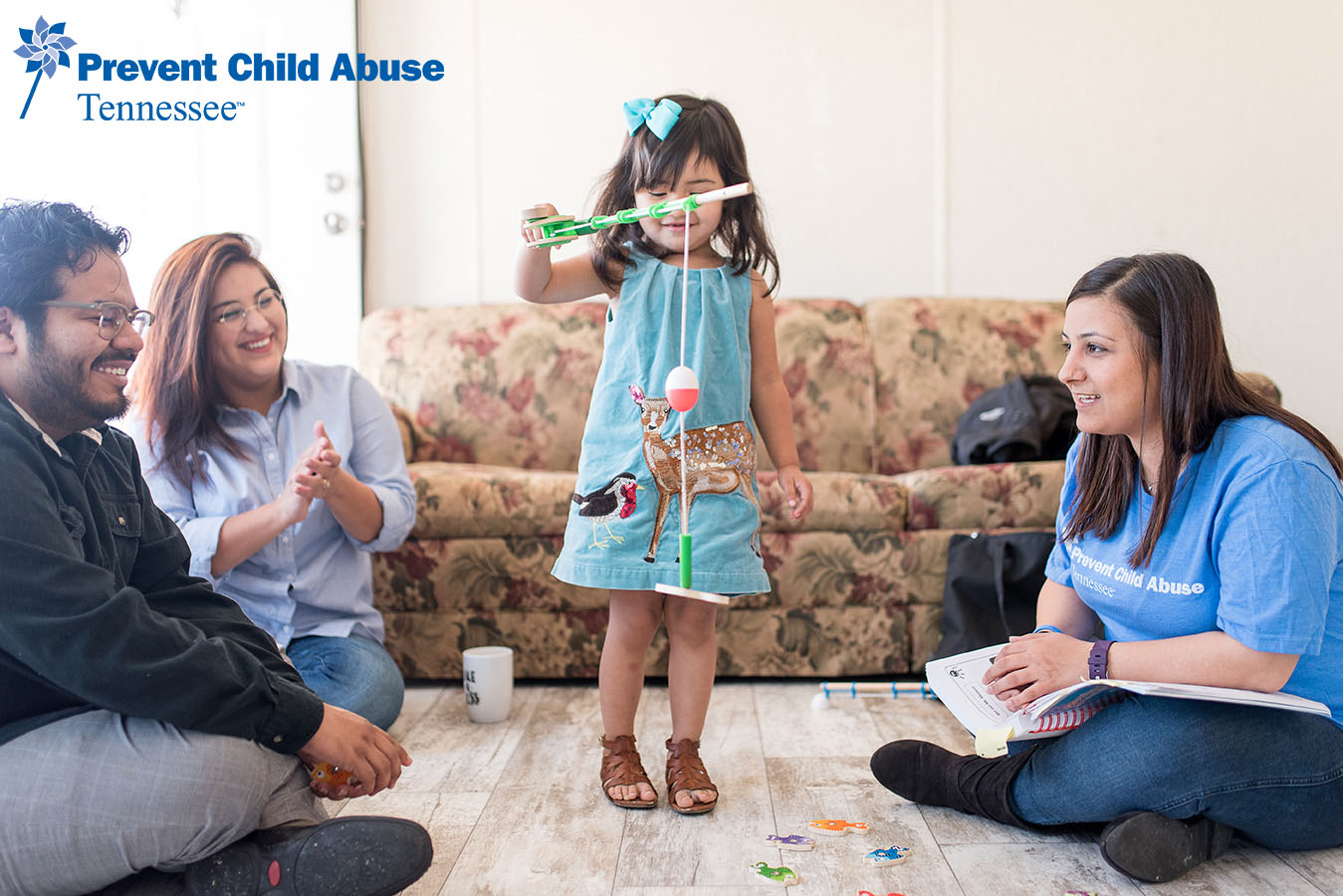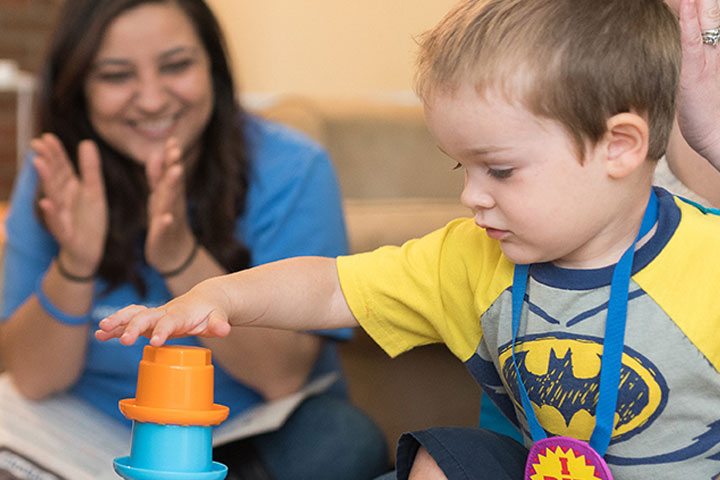Jennifer Pignolet of the Memphis Commercial Appeal wrote a terrific article last week describing Porter Leath’s home visiting program and its impact. Read her article HERE.
We’ve also written a blog post about a family served through Prevent Child Abuse Tennessee’s early home visiting program, which you can read HERE.
Home visiting professionals visit families in their homes to coach parents on how to support their child’s healthy development as well as offer connections to additional community resources and services to meet their child’s health, developmental and learning needs.
This evidence-based solution has repeatedly proven to strengthen bonding between mothers and infants, improve parenting skills, reduce abuse and neglect, improve health of parents and babies, and ready children for their school years. There is also considerable evidence that home visiting generates strong ROI: investments in home visiting programs reduce negative societal impacts immediately and in the long run, in turn saving taxpayers substantial money by providing a return of up to $5.70 for every $1 invested.
Under the Haslam Administration, Tennessee has been supportive of home visiting administered through the Department of Health and supported by the Tennessee Commission on Children and Youth. This year, Representative Ryan Williams (R-Cookeville) and Senators Becky Massey (R-Knoxville) and Steve Dickerson (R-Nashville) led legislative approval for an additional $1.4 million in recurring funding to boost the annual home visiting budget to $3.4 million.
The preservation and expansion of these vital programs is essential for Tennessee’s most vulnerable children and families, but there are still far too many families with no access to help. At the current level of funding, Tennessee is able to provide home visiting services to only 1.7% of the children who would qualify for services. And of the 95 counties in Tennessee, 45 counties have no home visiting services at all.
Adding to the urgent need for expanded home visiting is the efficacy of home visiting services to combat the negative consequences of the opioid epidemic. Arguably, no state is affected by the opioid scourge more than Tennessee where last year nearly 1,000 babies were born addicted to the drugs and where there are more opioid prescriptions in our state than there are Tennesseans. The opioid crisis affects every Tennessee community, causing damage to families and posing dangerous risk to the healthy development of young people. Expanded home visiting can be a potent complement to Governor Haslam’s Tennessee Together plan to fight opioids because it can mitigate ACEs stemming from the trauma of substance abuse and strengthen bonds between parents and their children.
As we highlighted in newspapers across Tennessee this past April, investing in home visiting is smart policy for Tennessee. TQEE and our coalition members are engaging General Assembly leadership and will work with Governor Haslam’s successor to advocate support for high quality early childhood programs, including evidenced-based home visiting, as a priority.
Mike, Lisa and the TQEE Team
You might also be interested in: Evidence Based Home Visiting





